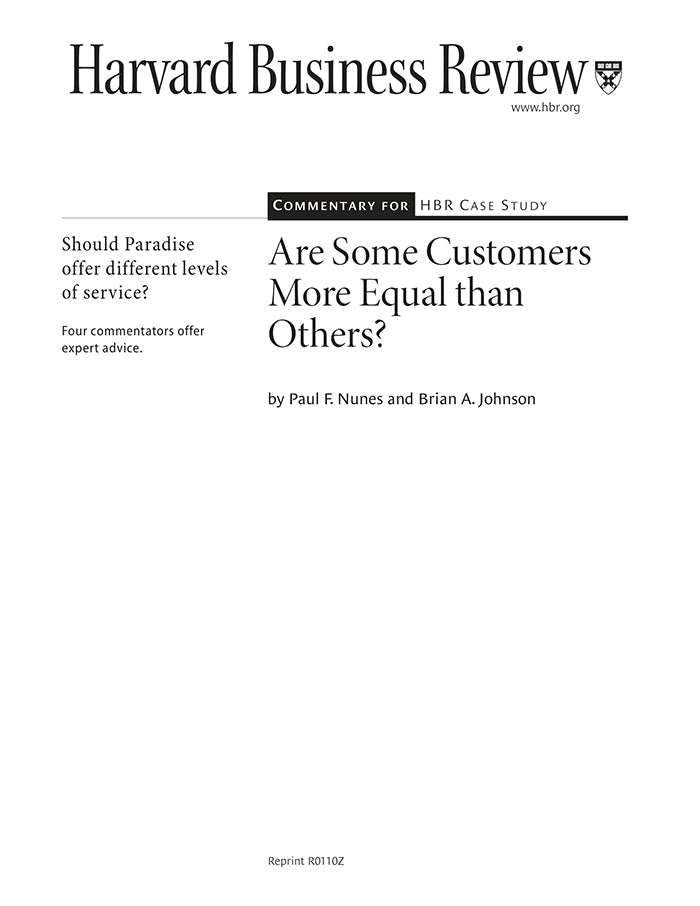Are Some Customers More Equal than Others? (Commentary for HBR Case Study)
受取状況を読み込めませんでした
For teaching purposes, this is the commentary-only version of the HBR case study. The case-only version is reprint R0110X. The complete case study and commentary is reprint R0110A. Jill Hoover was looking skyward, marveling at the heart-stopping beauty of Paradise Park-Seattle's newest attraction, its tallest and scariest roller coaster to date: the Anaconda. "Quite impressive," Jill thought. But a scuffle in the ride queue quickly brought the CEO of Paradise Parks back to earth. The company's 19 seasonal and year-round amusement parks had always been popular--ever since Jill's father founded the original Paradise Park just after the Second World War--but they hadn't been very profitable of late. Operating costs had been spiraling, and every dollar of extra revenue had been hard won. At the company's annual management off-site meeting, held that morning at the Seattle park, CFO Nathan Cortland proposed that Paradise offer its customers the option of a "preferred guest" card. Cardholders would pay more, but they would get first crack at the rides--entering through separate lines--and would get seated immediately at any of the parks' restaurants. According to Nathan, the plan would bolster Paradise's sagging finances because it would target the "mass affluents"--a rising demographic of moneyed but time-pressed people who might visit the park more often and spend more if it weren't for long lines at the rides. Jill respects Nathan's idea--but hasn't her plan to upgrade some of the parks' souvenir shops to gift boutiques already shown some promise? And doesn't Nathan's plan smack of elitism, as Jill's longtime friend and park manager Adam Goodwin suggests? The CEO has resolved to get back to Nathan with a decision about "Operation Upmarket" by the time she leaves Seattle and returns to headquarters. Should Paradise Parks offer guests different levels of service? In R0110A and R0110Z, John Harrington, Edward Goldman, Alexander Labak, and Robert Crandall offer their advice on this fictional case study.
【書誌情報】
ページ数:3ページ
サイズ:A4
商品番号:HBSP-R0110Z
発行日:2001/11/1
登録日:2011/7/29


